The regulation of digital platforms is already a reality
The Digital Markets Act is about to be approved in the European Union and is expected to impact other jurisdictions
At the end of November 2021, the Internal Market and Consumer Protection Committee of the European Parliament approved the draft Digital Markets Act (DMA) by an absolute majority, with 42 votes in favor, two against, and one abstention. After the recent approval of a new text, the project will be voted on in the plenary of Parliament , then will be negotiated with the European Council still in the first half of 2022.
Despite the long European debate on the regulation of “digital markets”, the Brazilian debate is still incipient on the subject. We here present a first explanation of the Digital Markets Act and its driving ideas.
What is DMA?
The DMA is an European regulatory project presented in 2020 and aims to ensure a greater degree of competition in the European Union digital markets, preventing the abuse of power by large digital companies and allowing the entry of new agents. In other words, in favor of a fairer and more competitive market, the goal of the bill is to prevent unfair practices and guarantee contestability in this market.
As an ex-ante legislation, applied before damage or violation occurs, the bill seeks to achieve this objective through an asymmetric regulation. In other terms, a regulation that only affects some platforms – in this case, the so-called gatekeepers.
According to the DMA, gatekeepers are companies that offer “core platform services”, which range from social networks (such as Facebook and Instagram), to search engines (such as Google), operating systems (such as Android), and video sharing services (such as YouTube). In all cases, they must have a significant impact on the European domestic market: they operate in one or more gateways for customers and enjoy an entrenched and durable position in their operations.
Whether a company falls into the category of a gatekeeper is determined by qualitative and quantitative criteria
[1] [1] Specifically, (i) if the company to which it belongs achieves an annual turnover in the European Economic Area (EEA) equal or above EUR 7.5 billion in the last three financial years, or where the average market capitalisation or the equivalent fair market value of the undertaking amounted to at least EUR 75 billion in the last financial year, and it provides a core platform service in at least three Member States; (ii) if it provides one or more core platform services each of which has more than 45,000 monthly end users established or located in the EEA and more than 10,000 yearly business users established in the EEA in the last financial year.. These criteria, however, are only presumptions: even if companies meet the established thresholds, they can contest the position of gatekeeper through sufficient and grounded indicators that prove the presumption wrong.
Likewise, it is possible that the European Commission justifiably designates a digital platform providing a core service as a gatekeeper even if it does not reach the established thresholds . When framed as a gatekeeper, the platform is subject to some obligations.
What are the obligations imposed by the DMA?
These platforms are subject to a list of 18 obligations, which include duties (“do’s”) and prohibitions (“don’ts”). Some previous cases scrutinized by competition authorities, such as Google and Booking in the European Union, inspired the obligations assigned by the DMA. As explained by economist Tommaso Valletti, this is a choice of simplification, so to speak, in the face of the failures of the traditional competition law framework.
For example: on the list of “do’s” gatekeepers must: allow and technically enable end-users to uninstall pre-installed software applications; ensure compatibility of third-party apps with the gatekeeper operating system and allow those apps and app stores to be accessed by other means; provide advertisers with pricing information and publishers with compensation information, and provide both, free of charge, with access to gatekeeper performance measurement tools and the information needed to perform their ad inventory check.
Among the obligations on the list of “don’ts“, gatekeepers must refrain from: combining personal data from their core services with personal data from other services of theirs or third parties; enrolling end-users in others of their services to combine personal data; restricting commercial users from bringing complaints related to gatekeeper practices to public authorities; bundle their core service with identification services or with core gatekeeper services; to rank its products and services more favorably than competing third-party products and services (for example, banning most favored nation clauses and ensuring services under fair and non-discriminatory conditions).
The Act also imposes restrictions on the so-called killer acquisitions, mergers motivated by the exclusion of potential competitors. These obligations are attempts to address problems such as the lack of balance between the rights and obligations of gatekeepers and their commercial users and competitors, which leads to a lack of transparency, lack of contestability, and undermines value creation (long-term efficiency).
Application of DMA
The DMA foresees the application of the rules in a centralized way by the European Commission, in cooperation with the national competition authorities of the European countries. Fines range from 4% to 20% of the companies’ total revenue.
These rules complement but do not exclude the incidence of competition law. In other words, the proposal establishes ex-ante regulation to minimize the harmful structural effects of unfair practices without limiting the ex-post intervention capacity of competition law.
DMA context
The initiative is part of a bigger context of confronting anti-competitive practices perpetuated in digital markets. In recent years, several competition authorities, sharing efforts with academia and the legislature, have produced reports on the competitive issues and challenges generated by the digital economy, seeking to deal with the growing economic power of large technology companies. From these studies and debates, initiatives to regulate large platforms emerged.
In the United Kingdom, the data protection authorities (Information Commissioner’s Office, ICO) and the competition authority (Competition Markets Authority, CMA) published a joint document encouraging inter-institutional cooperation on digital market topics. The country also created the Digital Regulation Cooperation Forum (DRCF), which brings together competition, data protection, communications, and financial services authorities. In the United States, five bipartisan bills were proposed in the context of the Antitrust Subcommittee, which in 2020 completed a 16-month investigation into the state of competition in the digital marketplace and the unregulated power wielded by Amazon, Apple, Facebook, and Google. Overall , the projects aim to ensure stricter control over the expansion of digital platforms, regulate mergers and acquisitions criteria, and promote a more favorable environment for competition.
China’s State Administration for Market Regulation (SAMR) has also published proposed guidelines for regulating large platforms. Among the objectives of the guide are the protection of fair competition and the rights and interests of consumers, the promotion of scientific and technological innovation, and more standardized management of Internet platforms.
The international scenario is moving towards the regulation of digital platforms. DMA is a symptom and evidence of a profound change in the mindset of regulators. It is a bet on a regulatory strategy that escapes traditional canons. Undoubtedly, it is an action that may inspire legislative movements in Latin America in the coming years.
This article was originally posted in Jota
| This article is a translation and an update of an article published in “Jota”, in Portuguese, in December 2021 – “Com o DMA, regulação de plataformas digitais já é realidade“. |
Veja também
-

Lançamento | Documentário “IA com Direitos: inovação com justiça, inclusão e diversidade”
A produção reúne diversas vozes e chama a atenção para o papel da sociedade civil no debate sobre a regulação da Inteligência Artificial.
-

Comissão especial do PL de IA na Câmara dos Deputados
O processo legislativo do PL de IA avança com a formação da comissão especial na Câmara dos Deputados. A Data Privacy Brasil acompanha os desdobramentos, destacando a importância da escuta qualificada da sociedade civil.
-

Monitoramento de fusões e aquisições em mercados digitais: confira o novo banco de dados da SOMO
A SOMO, parceira da Data Privacy Brasil no projeto “Observatório de Fusões Digitais”, lança o Big Tech M&A tracker, iniciativa que consiste em um banco de dados com o objetivo de aumentar a transparência e permitir o acesso público a informações importantes sobre fusões e aquisições. A Data integra o projeto juntamente com mais 15 organizações, nacionais e internacionais.
-

Pode o Cade proteger a Infraestrutura Pública Digital?
Recentemente, o Conselho Administrativo de Defesa Econômica (Cade) realizou uma audiência pública para discutir questões concorrenciais em mercados digitais relacionadas aos sistemas operacionais iOS e Android. Saiba mais sobre o caso no texto escrito por Natasha Nóvoa e Rafael Zanatta.
-

Observatório das Fusões Digitais: Data Privacy Brasil integra nova iniciativa global
A articulação conta com organizações nacionais e internacionais e se dedicará a analisar e contestar os esforços das Big Techs para reforçar seu domínio por meio de fusões e aquisições.
-

Data Privacy Brasil atua para proteger os direitos de crianças e adolescentes em plataformas educacionais
A Data Privacy Brasil protocolou uma contribuição como amicus curiae no procedimento nº 00261.001328/2023-77, instaurado pela Autoridade Nacional de Proteção de Dados (ANPD). O objetivo é debater e propor medidas contra a coleta e o compartilhamento indevido de dados pessoais de crianças e adolescentes por plataformas educacionais digitais.
-

IA e as mudanças no judiciário brasileiro
Em fevereiro de 2025, o CNJ aprovou nova resolução sobre IA no Judiciário, estabelecendo diretrizes para seu uso responsável e transparente. A Data Privacy Brasil contribuiu com recomendações sobre governança ética e proteção de direitos fundamentais.
-

Beyond Digital Rights: Towards a Fair Information Ecosystem?
One of the major challenges in the field of digital rights is the tendency toward segmentation and hyper-specialization in topics such as privacy, freedom of expression, net neutrality, data protection, and the regulation of AI systems. Learn more about the topic in the article published in Tech Policy.
Veja Também
-

Lançamento | Documentário “IA com Direitos: inovação com justiça, inclusão e diversidade”
A produção reúne diversas vozes e chama a atenção para o papel da sociedade civil no debate sobre a regulação da Inteligência Artificial.
-

Monitoramento de fusões e aquisições em mercados digitais: confira o novo banco de dados da SOMO
A SOMO, parceira da Data Privacy Brasil no projeto “Observatório de Fusões Digitais”, lança o Big Tech M&A tracker, iniciativa que consiste em um banco de dados com o objetivo de aumentar a transparência e permitir o acesso público a informações importantes sobre fusões e aquisições. A Data integra o projeto juntamente com mais 15 organizações, nacionais e internacionais.
-

Pode o Cade proteger a Infraestrutura Pública Digital?
Recentemente, o Conselho Administrativo de Defesa Econômica (Cade) realizou uma audiência pública para discutir questões concorrenciais em mercados digitais relacionadas aos sistemas operacionais iOS e Android. Saiba mais sobre o caso no texto escrito por Natasha Nóvoa e Rafael Zanatta.
-

Observatório das Fusões Digitais: Data Privacy Brasil integra nova iniciativa global
A articulação conta com organizações nacionais e internacionais e se dedicará a analisar e contestar os esforços das Big Techs para reforçar seu domínio por meio de fusões e aquisições.
-

Data Privacy Brasil atua para proteger os direitos de crianças e adolescentes em plataformas educacionais
A Data Privacy Brasil protocolou uma contribuição como amicus curiae no procedimento nº 00261.001328/2023-77, instaurado pela Autoridade Nacional de Proteção de Dados (ANPD). O objetivo é debater e propor medidas contra a coleta e o compartilhamento indevido de dados pessoais de crianças e adolescentes por plataformas educacionais digitais.
-

IA e as mudanças no judiciário brasileiro
Em fevereiro de 2025, o CNJ aprovou nova resolução sobre IA no Judiciário, estabelecendo diretrizes para seu uso responsável e transparente. A Data Privacy Brasil contribuiu com recomendações sobre governança ética e proteção de direitos fundamentais.
-

Beyond Digital Rights: Towards a Fair Information Ecosystem?
One of the major challenges in the field of digital rights is the tendency toward segmentation and hyper-specialization in topics such as privacy, freedom of expression, net neutrality, data protection, and the regulation of AI systems. Learn more about the topic in the article published in Tech Policy.
-

A participação da Data Privacy Brasil no Paris AI Action Summit 2025
A Data Privacy Brasil estará na Cúpula de Ação Sobre Inteligência Artificial (IA) nos dias 10 e 11 de fevereiro de 2025, em Paris. Confira o texto e saiba como será nossa participação.
-

A construção da legislação de Inteligência Artificial no Brasil: análise técnica do texto que será votado no Plenário do Senado Federal
A Comissão Temporária Interna de Inteligência Artificial (CTIA) do Senado Federal aprovou o relatório do substitutivo do Projeto de Lei 2338/2023, que objetiva definir as normas jurídicas de regulamentação dos usos de sistemas de Inteligência Artificial no Brasil. Confira o texto análise sobre o tema em nosso site.
-

IA e os direitos das crianças
Com o avanço das tecnologias digitais e a crescente presença da Inteligência Artificial (IA) em diversos setores, surge uma preocupação central: como proteger as crianças e adolescentes em um cenário onde as interações digitais estão se tornando cada vez mais prevalentes? Saiba mais no texto.
-

Data Privacy Brasil submete contribuição para o Grupo de Trabalho do Conanda
O objetivo é contribuir para o desenvolvimento da Política Nacional de Proteção dos Direitos da Criança e do Adolescente no Ambiente Digital. Confira quais foram as nossas indicações no texto.
-
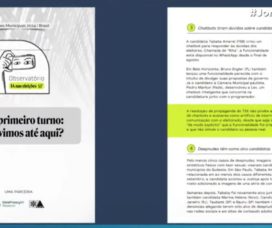
Relatório aponta que uso da IA nas eleições não causou impacto negativo
Na quarta-feira (16), Carla Rodrigues, coordenadora da área de Plataformas e Mercados Dgitais na Data Privacy Brasil esteve presente no programa Jornal da Cultura. A edição repercutiu o relatório "IA no primeiro turno: o que vimos até aqui?", uma parceria entre Aláfia Lab, *desinformante e Data Privacy Brasil.
-

IA no primeiro turno: o que vimos até aqui?
Aláfia Lab, *desinformante e Data Privacy Brasil lançam relatório com análise sobre o uso de IA no primeiro turno das eleições de 2024.
-

‘Nudes’ falsos, deepfake e jingles sintéticos marcam uso da IA no primeiro turno e apontam desafios para 2026
Embora o temor de desinformação massiva não tenha se concretizado, casos registrados na eleições municipais servem de alerta para a corrida presidencial, avaliam especialistas. Confira a reportagem sobre o novo relatório do Observatório IA nas Eleições, parceria entre Data Privacy Brasil, o Aláfia Lab e desinformante.
-

Data participa da 9ª edição do Simpósio Crianças e Adolescentes na Internet
Estão abertas as inscrições para a 9° edição do “Simpósio Crianças e Adolescentes na Internet”, que acontece no dia 23 de outubro de 2024, em São Paulo.
-

IA com Direitos: diálogo e colaboração para regular e proteger
A Data Privacy Brasil lança projeto para unir pessoas e organizações para uma regulação de IA centrada em direitos no Brasil.
-

Data Privacy Brasil e Aláfia Lab lançam o “Observatório de IA nas eleições”
A Data Privacy Brasil, em parceria com o Aláfia Lab e o *desinformante, lançam o “Observatório de IA nas Eleições”, uma nova plataforma que tem o objetivo de mapear e registrar casos de uso de IA generativa durante as eleições brasileiras de 2024.
-
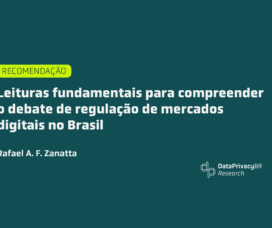
Leituras fundamentais para compreender o debate de regulação de mercados digitais no Brasil
O tema da regulação econômica dos mercados digitais tem se tornado cada vez mais crucial para democracias contemporâneas, como a brasileira. Confira as recomendações sobre o tema em texto escrito por Rafael Zanatta, codiretor da Data.
-

IA e direitos para quem trabalha
Com o avanço das tecnologias digitais e a crescente presença da Inteligência Artificial (IA) em diversos setores, surge uma preocupação central: como proteger quem trabalha em um ambiente de rápidas transformações? Confira no texto.
-

No aniversário de 6 anos da LGPD, Data Privacy Brasil pede priorização da proteção das crianças e adolescentes
A tomada de subsídios é mais um passo na construção de uma agenda de regulação da ANPD neste tema, em julho, diversas organizações da sociedade civil pediram aumento do prazo para a agência devido à importância da discussão.
-

Entidades civis exigem da ANPD mais prazo para discussão de proteção de dados de crianças e adolescentes
Dada a importância do tema e a necessidade de um prazo maior para análise, compreensão e produção de contribuições, diversas entidades assinaram uma Carta Aberta solicitando à ANPD a ampliação do prazo por mais 30 dias.
-

Plataforma de inteligência artificial usa imagens de crianças brasileiras sem autorização
Reportagem do Jornal nacional aborda como uma plataforma de inteligência artificial na Alemanha está usando imagens de crianças brasileiras sem autorização. Rafael Zanatta, codiretor da Data Privacy Brasil fala sobre as principais preocupações relacionadas ao tema.
-

IA na sala de aula: Construindo modelos participativos para a comunidade escolar
Como a comunidade escolar pode participar da governança das tecnologias de ensino-aprendizagem? Para responder a esta questão, lançamos a cartilha “Inteligência Artificial na Sala de Aula: modelos de participação para a comunidade escolar”.
-

IAs nas eleições: ‘socializar e compartilhar não apenas os benefícios mas também os riscos’
O TSE deve votar hoje as regras para as eleições municipais. Bruno Bioni, diretor do Data Privacy Brasil, fala sobre resolução que deve disciplinar uso de tecnologias de inteligência artificial nas campanhas.
-

Data Privacy Brasil demanda esforços públicos e privados nas eleições de 2024 diante das IAs
A Data Privacy Brasil vem a público elogiar a aprovação de novas regras para eleições de 2024 pelo Tribunal Superior Eleitoral (TSE) na noite de 27 de fevereiro, sob relatoria da vice-presidente da corte eleitoral, ministra Cármen Lúcia, bem como manifestar preocupações com relação aos potenciais usos abusivos de tecnologias da informação nas eleições deste ano.
-
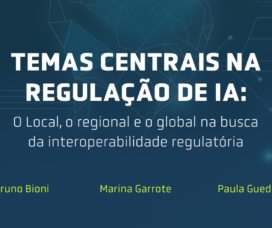
Temas Centrais na Regulação de IA: o local, regional e o global na busca da interoperabilidade regulatória
A Data Privacy Brasil anuncia o lançamento de seu position paper sobre temas centrais na regulação local, regional e global de inteligência artificial. O documento traz os principais pontos de convergência entre mais de 20 fontes normativas, sem deixar de considerar as particularidades necessárias para o contexto brasileiro.
-

Confundida com criminosa por ‘Inteligência Artificial’ denuncia racismo: “Discriminada por ser pobre e preta”
Um erro da IA (Inteligência Artificial) usada no reconhecimento facial das câmeras de um evento em Aracaju (SE), motivou a abordagem. Ela conta que, meia hora após chegar à micareta, três agentes à paisana da PM a interceptaram. Perguntaram o nome dela e pediram o documento. Como ela estava sem o RG, o constrangimento iniciou.
-

EUA adotam novas diretrizes para IA
Na última segunda (30/10), o presidente dos Estados Unidos, Joe Biden assinou um decreto sobre inteligência artificial, o qual busca equilibrar as necessidades de empresas de tecnologia de ponta com a segurança nacional e os direitos dos consumidores. O governo estadunidense almeja estabelecer um conjunto de proteções que possam ser fortalecidas por legislações e acordos globais. Mas quais disposições são essas? Vamos conferir!
-

Data Privacy Brasil participates in UN’s OHCHR briefing on Brazil
The organization highlighted how the advance of edtech has been violating children’s privacy in the country
-

Privacidade e Proteção de Dados: Uma abordagem dos direitos das crianças para a criptografia
Há quem entenda que a garantia do anonimato pela criptografia e a proteção de crianças na internet são coisas separadas, até mesmo opostas. Porém, novo relatório propõe uma olhar mais complexo e multissetorial para a questão.
-

Associação Data Privacy Brasil de Pesquisa participa da Reunião Ministerial da OCDE sobre economia digital
Evento teve como principal tema de debate os caminhos para um futuro inclusivo no ambiente virtual
-
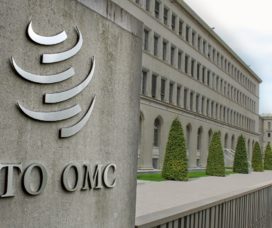
Organização Mundial do Comércio realiza a sua 12ª Conferência Ministerial
A cobertura do evento, dedicado a acordos e negociações envolvendo comércio internacional, foi acompanhada pela Associação Data Privacy Brasil de Pesquisa.
-

Associação Data Privacy Brasil de Pesquisa participa do painel “Proteção de criança online na pandemia: ferramentas e boas práticas para um ambiente seguro”
Workshop, que faz parte das atividades do 12 Fórum da Internet no Brasil, buscou apresentar e debater o surgimento de novas ferramentas para conter as ameaças que crianças e adolescentes encontram ao utilizarem a internet
-
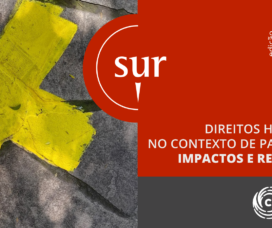
Conectas e Data Privacy Brasil lançam a 31° edição da Revista Sur
Publicação proporciona debates a respeito dos impactos da pandemia sobre os direitos coletivos e liberdades individuais no Sul Global
-

A regulação de plataformas digitais já é realidade
O Digital Markets Act está para ser aprovado na União Europeia e deve impactar outras jurisdições
-

DISCUSSION PAPER No 2/2021: A MULTIJURISDICTIONAL ANALYSIS OF DATA-DRIVEN MERGERS: CURRENT ASSESSMENT AND PUBLIC POLICY PROPOSALS FOR BRAZIL
Data Privacy Brazil Research in partnership with the Brazilian Institute for Consumer Protection (Idec) launches a seven month study about data-driven mergers led by the researcher Lucas Griebeler Motta (University of Chicago).
-

A proteção legal dos dados pessoais de crianças e adolescentes no Brasil
Discussões sobre a proteção de dados de crianças e adolescentes ao longo do processo de discussão da LGPD no Executivo e Legislativo, buscando entender como chegou-se ao atual art. 14 da lei.
-

TikTok e o “caso Antonella” na Itália
Uma menina de 10 anos chamada Antonella foi ao banheiro da sua residência, sozinha, levando seu celular, para realizar um desafio denominado blackout challenge no aplicativo TikTok. O desafio consistia em tentar ficar sem respirar o máximo possível. Para tanto, ela colocou uma faixa ao redor do pescoço, o que gerou um desmaio, seguido de um coma. […]
DataPrivacyBr Research | Conteúdo sob licenciamento CC BY-SA 4.0

